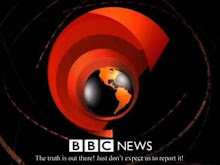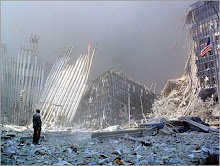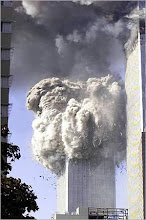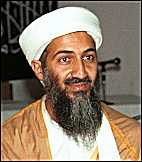The Gilligan Affair sets standards by which we can judge the BBC 9/11 Conspiracy Files documentary
 "This report (Butler) casts a chill over all journalism, not just the BBC's."
"This report (Butler) casts a chill over all journalism, not just the BBC's."It seeks to hold reporters ... to a standard that it does not appear to demand of government dossiers." Andrew Gilligan
The Gilligan affair illustrates the governmental pressures that the BBC have been working under. The affair ultimately resulted, after the Butler Inquiry, in the resignation of the BBC’s chairman, Gavyn Davies, and its highly popular Director General, Greg Dyke.
Gilligan used unattributable information not based on physical evidence. His source had, until then, an impeccable record. The Guy Smith produced 911 Conspiracy File was based on 14 mostly compromised "sources" supporting the official explanation of 911 plus 3 who were supposed to present the foundation of the programme - the opposing theories - which in the real world are mainly questions.
The BBC offered little evidence either way. There was no third party scientific investigation undertaken except for Purdue University where the BBC falsely presented the "sources" as independent of government.
The BBC is self regulating. Only the government, it seems, can hold it to account for misrepresentation or for other breaches of the Royal Charter. Can this be right?
Exploring the Gilligan Affair
How the aftermath may have fatally wounded a prized and invaluable window on our deeply troubled world.
By Noel Glynn
Andrew Gilligan broadcast his allegation that the government "probably knew that the 45 minute figure was wrong even before it decided to put it in [their dossier]" only once at 6.07 am on the BBC radio’s Today programme.
In 19 subsequent broadcasts that day he instead said that the claim about Iraqi WMD being able to attack British interests within 45 minutes was regarded as questionable and based on information from only one source. That implied he had recognised the “probably knew” statement in his initial report was unwise and had corrected it nineteen times. This suggests goodwill on his part.
WAS BUTLER RIGHT?
Gilligan had his interview with civil servant weapons inspector, the late Dr David Kelly, to draw on. Butler was not party to what had passed between them yet censored Gilligan, and by vicarious liability the BBC, for broadcasting that the government “probably knew”. The implication of this judgement by Butler is that nothing defamatory about the government must ever be implied by the BBC without documentary proof of its validity; an impression gleaned from an unattributable interview with a civil servant in the know is insufficient. This means that well-founded suspicion of government wrong-doing must never be reported by the BBC.
Gilligan had his interview with civil servant weapons inspector, the late Dr David Kelly, to draw on. Butler was not party to what had passed between them yet censored Gilligan, and by vicarious liability the BBC, for broadcasting that the government “probably knew”. The implication of this judgement by Butler is that nothing defamatory about the government must ever be implied by the BBC without documentary proof of its validity; an impression gleaned from an unattributable interview with a civil servant in the know is insufficient. This means that well-founded suspicion of government wrong-doing must never be reported by the BBC.
The content of the BBC’s Conspiracy File suggests that suspicion of wrong-doing by the US government must not be reported either, but must be dismissed, without proper examination of the evidence, as a fantasy born of a psychological disorder.
Are Butler’s conclusions a prescription for a cautious BBC which will fear the consequences of seriously probing government failures and misdeeds?

"Geoff Hoon and I agreed it would fu*k Gilligan if that was his source."
Alistair Campbell
Is that the kind of independent broadcasting corporation envisaged in the BBC Charter, or does it lead to a corporation in awe and fear of the government, which would effectively constitute a medium of government propaganda?
The principle that Lord Butler faulted the BBC on was that of making unsubstantiated derogatory allegations. This is not a crime. It is considered a tort in civil law - a matter which is left to the injured party to decide whether or not to sue over. The government decided, instead of suing the BBC, to set up the Butler Inquiry and demanded an apology in the wake of Butler’s eventual conclusions which they got only at the expense of the resignation of the BBC Chairman and its Director General. After the resignations the acting BBC chairman apologised "unreservedly" for errors.
Was it predictable that government action would result in the resignation of the BBC bosses?
Even Butler had admitted that the intelligence used was drawn in part from "seriously flawed" or "unreliable" sources, so his admonishment of the BBC for once broadcasting that the government “probably knew” this was harsh, though probably what the government wanted. Subsequent evidence to have emerged has confirmed the correctness of Gilligan’s suspicion and Kelly’s knowledge that the government had used such unreliable intelligence to “sex-up” a dossier about Iraqi weapons, essentially exaggerating the dangers that the intelligence suggested.
It was Butler’s conclusions and the fuss the government made about them which resulted in the resignation of the BBC’s top bosses who attempted, unsuccessfully, to defend the corporation’s independence. The precedent set means that the BBC may not now report suspicions of government misdeeds. It was such a suspicion, gleaned from an unattributable interview with Iraq weapons inspector and British civil servant, Dr David Kelly, that Gilligan had voiced.
Was it damaging to the independence of the BBC for Butler to have concluded that essentially it should not have taken the risk of being sued. It raises the question of whether Butler, a former head of the Civil Service, was chosen by the government to conduct this inquiry because he was judged to have the kind of attitudes which would tend to support the government. Indeed, should matters of important national concern be decided by one person?
WAS THE GOVERNMENT RIGHT?
Gilligan’s allegation, according to evidence which has emerged subsequently, was correct. Nevertheless, the government made so much fuss about it, that the BBC’s chairman and Director General had to resign. The precedent set by this means that the BBC cannot afford to broadcast derogatory allegations about government based on an unattributable interview with a civil servant. This means that the BBC cannot broadcast or imply suspicion of government wrong-doing. According to Butler, therefore, the public must be kept in ignorance of such suspicions.
Newspapers frequently publish falsehoods and sometimes, when called to account, publish retractions. Should reporting by the BBC comply with a higher standard of proof than that applied to the rest of the media?
In other words is the national interest better served by:
A) A broadcasting corporation which will fearlessly dig out the truth,
or alternatively by
B) A body which will always support major government opinion-forming projects such as the need to win over public opinion to support an invasion of another country?
In a democracy the important issue is what kind of a broadcasting corporation does the public want: A or B?
What ever kind of BBC we had prior to the Gilligan incident and the Butler report, do we now have a BBC of type B. This review of the 911 Conspiracy File programme would tend to confirm that.
Whether the government was right in its handling of the affair depends on whether the public wants the BBC to be a subservient body of pro-government propaganda or an institution which can be relied upon to uncover the truth and tell the public about it.
SHOULD THE GOVERNMENT DEFEND THE BBC CHARTER?
The current BBC Royal Charter came in to force in January 2007. The Gilligan affair occurred during the jurisdiction of the previous Charter, though both charters maintain that the BBC’s primary responsibility is to the licence fee payers (the UK public), not to the government.
Since the Charter enshrines in law the independence and impartiality of the BBC, the government should defend the BBC’s independence rather than adopting tactics which force the resignation of the corporation’s bosses when they attempt to defend its independence. The Charter remains in place until parliament decides to amend it though government appears to have undermined BBC independence.
HAS THE GILLIGAN AFFAIR CURTAILED THE BBC’S ABILITY TO SEPARATE FACT FROM FICTION?
Despite its avowed aim to separate fact from fiction, the Conspiracy File programme has failed to do this.
It would appear that in the wake of the Gilligan affair we are left with a BBC which does not dare make an objective investigation of the truth of the US government account of what happened on 9/11.
Noel Glynn 11.9.2008







No comments:
Post a Comment